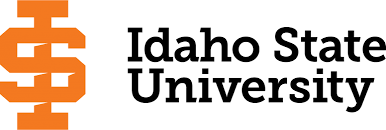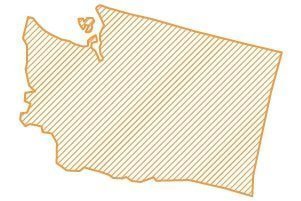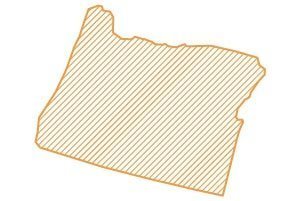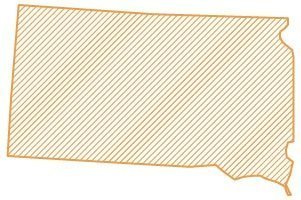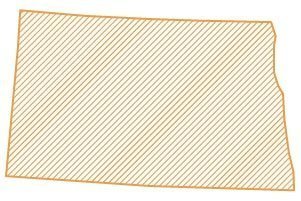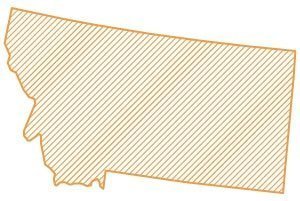In Idaho, the selection of master’s programs in Applied Behavior Analysis (ABA) is limited but aligned with the priorities of the Idaho Department of Health and Welfare (IDHW). State programs emphasize applied training and partnerships with local providers, an essential feature in a region where demand is growing in special education and developmental services. If you plan to study in Idaho, it’s advisable to verify that the program meets the requirements for professional certification or, if needed, to supplement your coursework with verified options from other states.
Quick Facts
● ABAI/VCS-Aligned Programs in Idaho: 1
● Average Program Length: 2 years
● Tuition Range (per unit): $601 – $1,670
Online ABA Programs That Meet Idaho BCBA Requirements
Online ABA Masters Programs in Idaho
Currently, Idaho does not offer a fully online master’s program with a published verified course sequence. For this reason, many residents choose out-of-state online programs and arrange their supervised field experience through Idaho school districts and agencies. This is a practical route for progressing toward certification without relocating, while local universities continue expanding their offerings.
University of Idaho
- Moscow, Idaho
- 30 hours
- Online + Campus
Program:
Master of Education in Special Education (ABA-Related Program)
Modality: Online or on-campus
GRE Required: not specified
Length: 30 credit hours
Tuition: $601 per credit hour for in-state residents and $1,670 for out-of-state residents. With a total of 30 credit hours required, the total program cost is around $18,030 for in-state students and $50,100 for out-of-state students. Does not include additional fees, materials, or personal expenses.
Program Overview
Designed for in-service teachers seeking to strengthen behavioral intervention and classroom supports, this program integrates supervised fieldwork in partner schools and an applied capstone aligned with real district needs, guided by faculty from the College of Education. Additionally, the university ecosystem provides opportunities to connect with the Center on Disabilities and Human Development (CDHD) for complementary training and initiatives.
Key Highlights
- School-based supervised practice: the student teaching/internship track structures observation, intervention, and on-site feedback, supported by detailed guides and manuals for mentors and supervisors.
- Integrated state resources: access to projects such as the Idaho Assistive Technology Project and CDHD training/services, useful for behavior plans incorporating technology supports and interagency collaboration.
Additional Considerations
- Teacher certification pathways: the program provides guidance for applying for certification through the Idaho State Department of Education upon completion of academic and practicum requirements.
- Delivery and logistics: offered online or on-campus, with current calendars and institutional costs listed in the catalog/tuition office; it is advisable to review general fees in addition to per-credit tuition.
Accreditation
- Institutional: University of Idaho — NWCCU.
- Program-Specific: this is an M.Ed. in Special Education; the catalog and official pages do not indicate a separate ABAI accreditation for this program.
ABA Certificate Programs in Idaho
ABA certificate programs within the state are still limited but are gaining traction as the demand for specialists grows. They are designed for professionals with a prior degree (in education, psychology, social work, or health) who want to complete the required academic training without pursuing another full master’s. In the short term, more options are expected to emerge as Idaho’s network of behavioral services continues to expand.
Online ABA Certificate Programs in Idaho
Online options work especially well for residents unable to relocate: they feature structured calendars, short modules, and applied work with cases from the student’s own professional setting. Most are delivered asynchronously with live sessions, and depending on the program, they can be completed in under a year while coordinating local supervision with Idaho-based providers.
Boise State University
- Boise, Idaho
- 12 hours
- Online

Program:
Graduate Certificate in Behavioral Interventions and Supports
Modality: Online
GRE Required: not specified
Length: 12 credit hours
Tuition: $525.89 per credit hour for in-state residents and $969.82 per credit hour for out-of-state residents. With a total of 12 credit hours required, the total program cost is around $6,310.68 for in-state students and $11,637.84 for out-of-state students. Does not include additional fees, materials, or personal expenses.
Program Overview
Designed for education professionals who work with students exhibiting challenging behaviors, from early childhood through adulthood. The university emphasizes direct application in classrooms and community settings, and it can be taken on its own or concurrently with the M.Ed. in Early and Special Education, allowing you to advance without pausing your career.
Key Highlights
- Does not lead to initial teacher certification and does not require certification for admission.
- Clear admissions calendar: application deadlines in May (fall), November (spring), and May (summer); requirements include a statement of intent, 2 recommendations, and a 3.0 GPA.
Additional Considerations
- Can be “stacked” with the M.Ed. in Early and Special Education to progress in graduate study without duplicating pathways.
- Housed within the College of Education and listed among its distance graduate offerings. Also review possible online course fees on the Student Financial Services page.
Accreditation
- Program-Specific: ABAI accreditation is not indicated; this is a graduate certificate in BIS within the College of Education.
- Institutional: Northwest Commission on Colleges and Universities (NWCCU).
Idaho State University
- Pocatello, Idaho
- 18 hours
- Campus
Program:
Minor in Applied Behavior Analysis
Modality: On Campus
GRE Required: not applicable
Length: 18 credit hours
Tuition: $351 per credit hour for in-state residents and $951 per credit hour for out-of-state residents. With a total of 18 credit hours required, the total program cost is around $6,328 for in-state students and $17,128 for out-of-state students. Does not include additional fees, materials, or personal expenses.
Program Overview
This minor is structured in a level-based progression: it first builds a foundation in development and disability, then advances to content focused on core ABA skills—such as operationalizing behaviors, measurement, and data collection. The approach is applied to classroom and community program settings, allowing students to graduate with a technical skill set ready for entry-level roles in educational and behavioral support contexts.
Key Highlights
- Clear curriculum map (6 courses): Child Development, Developmental Disabilities, Applied Behavior Analysis I & II, Learning and Behavior, and Ethics of ABA.
- Applied focus from the undergraduate level: the catalog specifies that this minor serves as a coursework component toward future assistant-level professional credentials.
Additional Considerations
- Offered through the Department of Psychology (College of Arts & Letters); suitable for students in psychology, education, or related fields seeking a formal foundation in ABA.
- The supervised experience required for professional certification is not included and must be arranged separately after completing the academic component of the minor.
Accreditation
- Institutional: Northwest Commission on Colleges and Universities (NWCCU).
- Program-Specific: the minor does not indicate ABAI accreditation (which applies to graduate programs); the catalog confirms its role as an academic block toward BCaBA® eligibility.
BCBA Legislation in Idaho
As of now, Idaho does not have a dedicated state board for licensing behavior analysts; practice typically relies on national BACB® certification and compliance with the state’s general behavioral health regulations. Regarding coverage, many commercial plans that include autism benefits cover ABA when medically necessary, and Idaho Medicaid reimburses ABA for minors under EPSDT, with clinical criteria and prior authorizations as applicable.
BCBA Demand in Idaho
Demand is steady and growing, with the highest concentration of openings along the Boise–Meridian–Nampa corridor and in hubs such as Idaho Falls, Twin Falls, and Coeur d’Alene. Positions appear in school districts, pediatric and developmental clinics, specialized autism providers, hospitals, and Medicaid-funded programs. Employers value profiles with experience in school settings, severe behavior management, team coordination, and payer-aligned clinical documentation.


